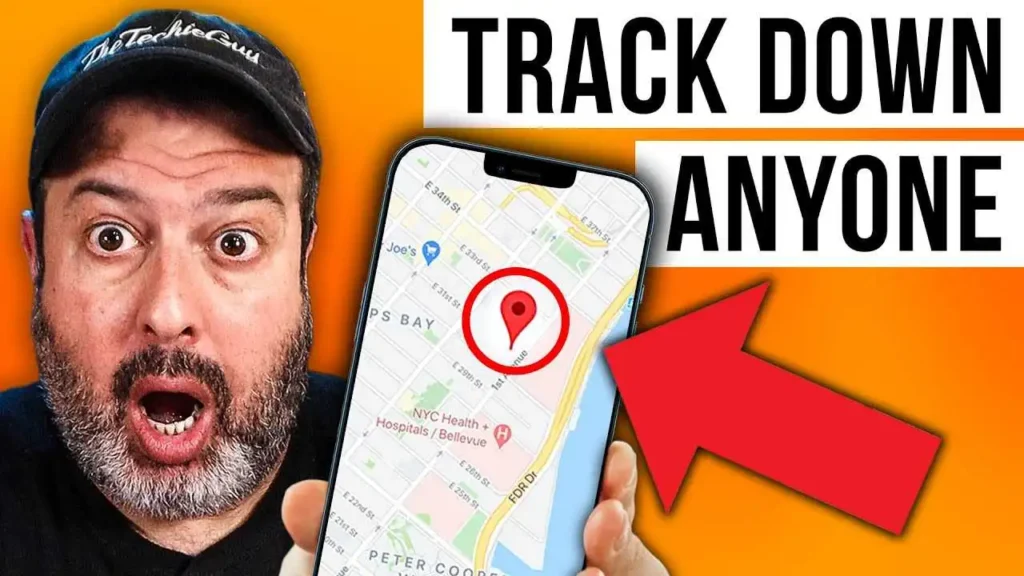
In today’s world, tracking a phone’s location is not just a fancy tech trick—it’s often a necessity.
Whether you’re trying to keep tabs on your family for safety reasons or need to find a lost phone, knowing how to track location by phone number can be incredibly useful.
But before diving into the methods, let’s explore why tracking is important and the different ways you can achieve it.
The Importance of Location Tracking
Tracking someone’s location can provide peace of mind and security.
For parents, it’s a way to ensure their children are safe. For businesses, it helps in managing employees and assets. And for individuals, it can be crucial if a phone is lost or stolen.
Overview of Methods
From built-in phone features to specialized apps, there are multiple ways to track a phone’s location. Understanding these methods will help you choose the best option for your needs.
Understanding Privacy Laws
Before tracking someone’s location, it’s essential to be aware of the legal and ethical boundaries. Most jurisdictions require consent from the person being tracked. Unauthorized tracking can lead to serious legal consequences, including fines and imprisonment.
Ethical Implications of Tracking
Even if it’s legal, tracking someone without their knowledge can be ethically questionable. Always ensure that your reasons for tracking are justifiable and that you respect others’ privacy.
Using Built-in Features
Tracking Through Smartphones’ Built-in Services
Many smartphones come with built-in location tracking features that are easy to use and reliable.
Apple’s Find My iPhone
For Apple users, Find My iPhone is a powerful tool. It allows you to track the location of your iPhone or any other Apple device linked to your Apple ID. To use it, simply log in to iCloud.com, or use the Find My app on another Apple device.
Google’s Find My Device
Android users can utilize Google’s Find My Device. This service lets you locate your phone, lock it, or even erase its data if needed. Just go to the Find My Device website or use the app on another Android device.
Popular Tracking Apps
Several apps are designed specifically for tracking locations, each offering unique features and benefits.
Life360
Life360 is a comprehensive family locator app that provides real-time location updates and allows for geofencing alerts. It’s an excellent choice for families who want to stay connected and informed about each other’s whereabouts.
Glympse
Glympse offers a straightforward way to share your location with friends and family temporarily. It doesn’t require any sign-up or registration, making it a quick and easy option for short-term tracking.
Geo Tracker
Geo Tracker is a great tool for those who want detailed location tracking and route recording. It’s especially useful for outdoor enthusiasts who want to track their routes and share them with others.
Features to Look For
When selecting a tracking app, consider features such as real-time updates, ease of use, and privacy controls. Ensure the app offers the functionalities you need and has good user feedback.
User Reviews and Ratings
Checking reviews and ratings can provide insights into the app’s performance and reliability. Look for apps with high ratings and positive feedback from users.
Carrier Services for Location Tracking
Network providers often offer location tracking services that can be integrated into your mobile plan.
Verizon Family Locator
Verizon’s Family Locator service allows you to track family members’ locations on a map. It’s a valuable tool for families who want to stay connected and ensure everyone’s safety.
AT&T FamilyMap
AT&T’s FamilyMap offers similar features, enabling you to track family members and receive alerts when they arrive at or leave specific locations.
How to Request Tracking Services
To use these services, you generally need to subscribe to the provider’s family tracking plan. Follow the provider’s instructions to set up and manage the service.
Using Third-Party Services
Online Location Tracking Services
Various online services offer location tracking, though they may come with limitations and risks.
Truecaller
Truecaller is known for its caller ID and spam blocking features, but it also offers location tracking. Be cautious, as the accuracy may vary and privacy concerns exist.
Spyic
Spyic is a more advanced option that provides comprehensive tracking and monitoring capabilities. It’s suitable for those needing detailed insights but requires careful consideration of privacy and legal aspects.
Risks and Limitations of Third-Party Services
Third-party services may not always be reliable or secure. They can pose privacy risks and often have limitations in accuracy and functionality. Use them with caution and ensure they comply with legal standards.
DIY Methods for Tracking
Using IMEI Number
The International Mobile Equipment Identity (IMEI) number is a unique identifier for each mobile device.
What is an IMEI Number?
IMEI is a 15-digit number that can be used to track a phone. It’s often found in the phone’s settings or by dialing *#06#.
How to Track Using IMEI
Tracking a phone using the IMEI number typically requires contacting your network provider or law enforcement. It’s not a method available for personal use and is generally used in situations involving lost or stolen phones.
Troubleshooting Common Issues
Problems with Location Accuracy
Sometimes, location tracking may not be as accurate as desired. This can be due to various factors such as poor signal strength or settings issues. Ensure that location services are enabled and check for any interference.
Dealing with Tracking App Failures
If a tracking app isn’t working correctly, try restarting the app or device. Ensure that the app is updated to the latest version and check its permissions. If problems persist, consider reaching out to the app’s support team.
Conclusion
Tracking a phone’s location by its number can be incredibly useful, whether for safety, recovery, or management purposes.
From built-in features and apps to carrier services and third-party solutions, there are various methods to choose from.
Always keep in mind the legal and ethical considerations to ensure your tracking activities are appropriate and respectful.
